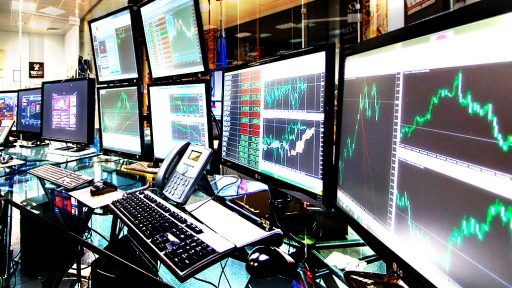- Home
- >
- Fundamental Analysis
- >
- Market overview

Market overview

Just a few weeks ago, the Dow Jones Industrial Average hit a fresh all-time high. On Wednesday, after several days of triple-digit declines, it closed down more than 600 points having erased all of its gains for the year.
It's not always possible to pinpoint why the market is up or down at any given time, but there are several factors that likely have contributed to the recent sell-off.
Sure, by several measures the U.S. economy is strong. Unemployment is at decades-old lows and businesses and consumers have shown confidence. Economic output is growing.
As they have all year, companies are reporting mostly good financial results for the third quarter. But this time around, executives have been talking about the challenges they face with rising production and materials costs and relatively new tariffs. Some of these executives say their profit margins risk getting squeezed by these factors, adding they might have to pass rising costs on to customers, if they haven't already.
Seven out of 11 sectors of the S&P 500 are in correction territory, meaning they have lost 10 percent or more since their most recent highs. Hardest hit are materials stocks, financials, energy and industrials. Consumer staples are a bright spot, on pace for their fifth straight month of gains fueled by Procter & Gamble and others.
Wall Street's so-called fear gauge, the CBOE Volatility Index, is at 25, the highest it's been since the market swoon earlier this year. It's an index that tries to measure what direction traders think the S&P will take in the near term.
That brings us to the Federal Reserve, which has raised its benchmark rate three times this year and is expected to hike one more time in December. The Fed has been determined to stay ahead of inflation and has signaled a willingness to keep raising rates to keep it in check, despite criticism from President Donald Trump.
Rising rates affect consumer willingness to borrow, however. Bank stocks have taken a hit this year on worries about lending. New home sales in September dropped 5.5 percent to a two-year low, and auto dealers report sales are down.
Then, there are worries about what's happening abroad. China, the world's second biggest economy, is showing slower growth. Last week, it reported economic growth of 6.5 percent in the third quarter, falling short of expectations. And it has been drawn into a trade dispute with the U.S., with each side digging in on tariffs on billions of dollars of each other's imports. There isn't any set timetable for resolving these differences, though President Trump is expected to meet with China's Xi Jinping in Argentina at the G-20 summit next month.
Amid the trade tensions is another factor: The U.S. dollar is strong compared to China's yuan and other foreign currencies, making American goods more expensive. This is problematic for emerging markets, where dollar-denominated debt is more expensive to repay and where demand for American goods could be dampened.
The stock market is also keeping a wary eye on Saudi Arabia and Italy. Oil prices have been falling recently, but with American sanctions cutting Iranian oil from the market, it will be up to the Saudis and other OPEC members to decide how to make up for lost supply. And Italy is in tough negotiations with the European Union on debt restructuring.
Finally, the U.S. midterm elections are quickly approaching. The market could be factoring in the fear that an overhaul of Congress, with at least one if not both chambers rolling over to Democrat control, could curtail some of the deregulatory and pro-business policies pursued by the current GOP leadership.
 Trader Georgi Bozhidarov
Trader Georgi Bozhidarov Read more:
If you think, we can improve that section,
please comment. Your oppinion is imortant for us.











